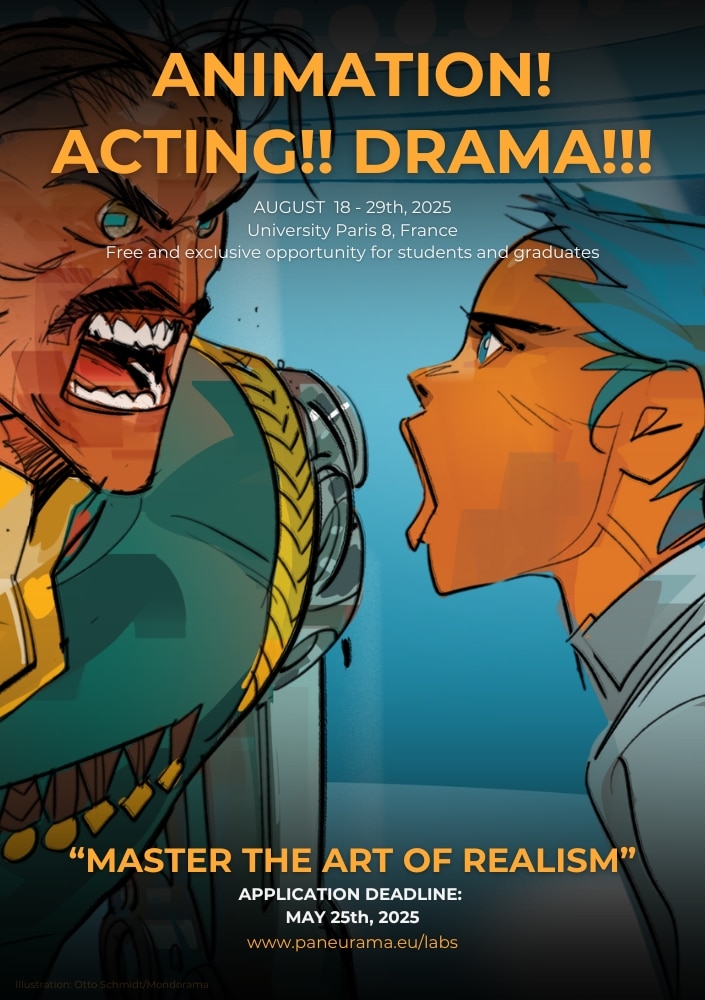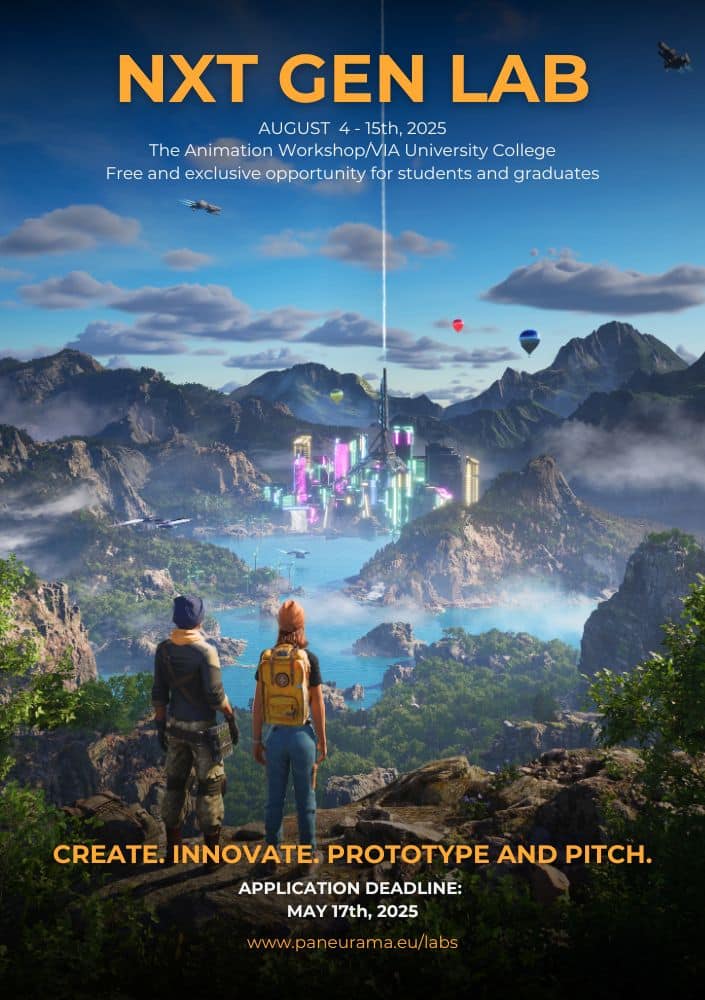We asked our team from the PANEURAMA project to briefly introduce themselves, share the areas they are working on, and respond to some questions addressing current challenges and opportunities in the industry.
We hope you will enjoy reading their insights. The interviewee is Marian Dobrunz from RISE | Visual Effects Studios.

Marian Dobrunz
Head of Human Resources
@RISE | Visual Effects Studios
Q: Can you provide a brief overview of yourself, the industry you work in, and your professional experience?
Well, I studied Sociology for quite some time, while also working as a Tutor and Scientific Research Assistant and doing an internship within an Oil Company.
Having no driver’s license took away the career choice to become a Taxi driver. As Sociology is about observing, describing, interpreting, and analysing human coexistence, I was pretty sure I wanted to do something centered around people.
But where? RISE obviously. How? I was lucky to know someone who knows someone who then introduced me to VFX in general and RISE specifically. Until then I thought everything in movies is actually blown up as in for real. Turns out I was wrong. There are people in front of Computers doing the trick.
Q: In recent years, what do you consider the most significant changes within your industry? How does it affect you or your company? Could you give some examples?
I’d assume one of the biggest changes within the VFX industry is the possibility of Working from Home nowadays. That was a “no-no” for quite some time due to technical limitations as well as concerning NDA restrictions. While this obviously gives us the chance to work with people all over the world — I’m ignoring the fact that this does apply to other companies as well and therefore intensifies the competition for talent globally — it also challenges us daily to recreate the offline VFX studio experience under online conditions.
Sounds crazy, right? But I love the mixture of art, technology, and project management that drives our projects on a daily basis and assembles such a special group of individuals. Recreating that online with people in different time zones, and different setups while probably working together for the first time is such a challenge. Sociology nerd alert: I want to recreate the Emergence even under those conditions as I really feel a well-run VFX project is way more than the sum of its pieces.
Q: What, in your opinion, are the primary challenges currently faced by the industry?
Well, the [2023 Writers Guild of America] strike is over now, so we can really ignore that.
Nonetheless, there’s always a struggle for the right amount of projects fitting your company, your schedule, and your expertise. As we’ve been doing this for more than 15 years now, this seems doable.
Other challenges? Work from home, hybrid work, and such matters. I truly believe we can get better every day when it comes to that.
Besides that: There’s ALWAYS not enough talent and we have to get better at developing the talent we have within our company… “Talent” sounds strange, so let’s put It like this: Finding the right people at the right time while also giving them opportunity to grow as professionals as well as personalities is the core of our business.
A lot of people are apparently afraid of AI. As much as I lack the knowledge for an educated comment, I see AI as a tool used by our amazing crew. So obviously we have to adapt here as well.
Q: Could you please identify the most significant opportunities within the industry?
I’d say: It’s amazing to implement new technologies and workflows, kind of daily, while providing top-notch quality work.
All that is to be combined with a lot of companies looking for people all day, every day. Global industry with global opportunities and challenges.
Q: What do you think are the most important hard skills in your industry?
Well, if you want to work as a Comp-artist, knowing NUKE might be essential.
For FX, mastering Houdini is obviously the way to go.
You get the point, right? Master the software for your respective field of interest while being able to adapt to new challenges.
Q: What recommendations would you offer to educational institutions to foster closer collaboration with the industry? Could you share some examples?
Coming from Germany, I’d say: Have mandatory internships. Get your students into the studios to gain very useful first insights into the real-life experience of a VFX project.
It’s beneficial for both parties as well: The companies get access to new talent – I said it again – while universities get instant feedback from their students after the internship if the curriculum covers what’s required out there. It’s a win win win.
Also maybe giving some lectures/workshops for the studios is a good way to bridge the gap from university to real-life VFX production.
We need to bridge the gap between education and industry.
Q: As an industry representative, what do you think companies should focus more on to prepare young artists for their careers better?
We need to give opportunities and room for failure. It’s always hard to find the right spot for recent graduates to run high-end VFX projects. At RISE we therefore developed a traineeship program that tries to smoothen the transition into a real VFX studio.
When it’s about preparation, don’t get me wrong, but it’s an unknown challenge for most people to transition into working within a team with a certain level of hierarchy, pressure, and deadlines. It’s about adapting to the professional workflow and work environment as well. So, we need to take care of that.
Q: What do you think are the most important soft skills in the industry, and could you give some advice on how to develop them?
Communication. Communication. And: Communication.
As much as we are sitting in front of screens, as much as we use tools for task assignments and such matters, it’s still a people’s business. The best experience is most certainly a result of smooth communication (channels). I’d go with: Take the position of the other person, what’s important for the other one is most certainly relevant for you as well.
Communication requires someone to say something and someone to listen. Now turn that around. Add additional people to it. Mix in clients and different points of reference and you have the challenge.
Advice: Work in teams early and often while taking on different roles within. Get and give feedback. Sounds easy, right? It’s not.
Q: Could you provide suggestions or recommendations for students and graduates aiming to succeed in the current market?
First of all: You made the right choice. I’ve been working within VFX for more than 7 years and trust me, I have daily challenges and struggles.
But: This industry or let’s say the people working in this industry are amazing. It takes different expertise to get our work done. It’s actually beautiful if it works out at the end of the day.
Besides that: I’d say you should master getting used to new software packages so you can adapt and stay close to new developments.
And: Get your hands dirty: internships as mentioned before. Challenge yourself with tutorials.
Most importantly: Never stop loving what you do even when in doubt try to find what brought you here at the beginning and go from there.

